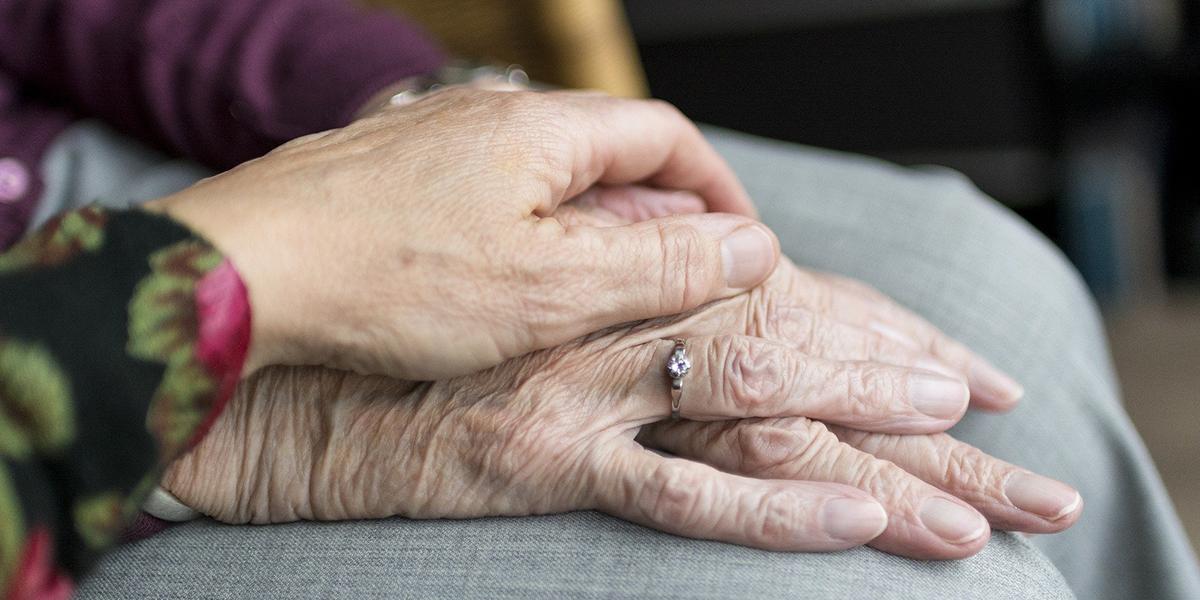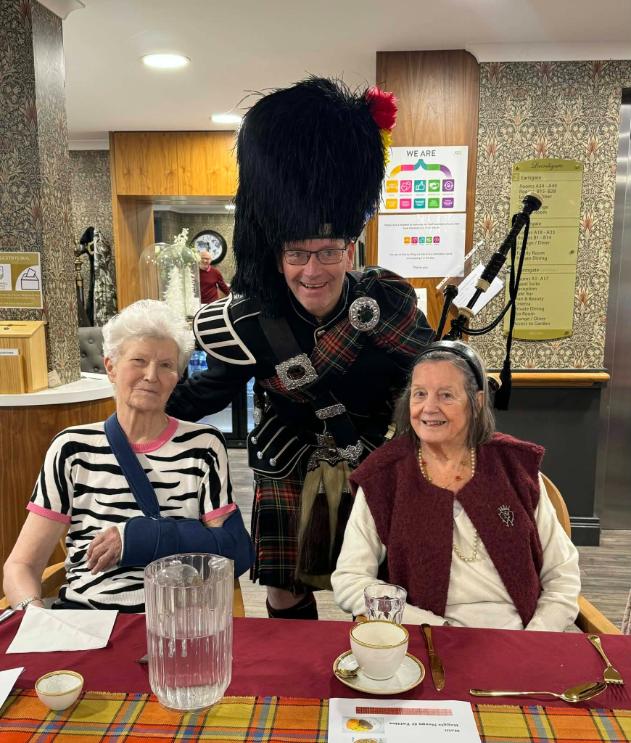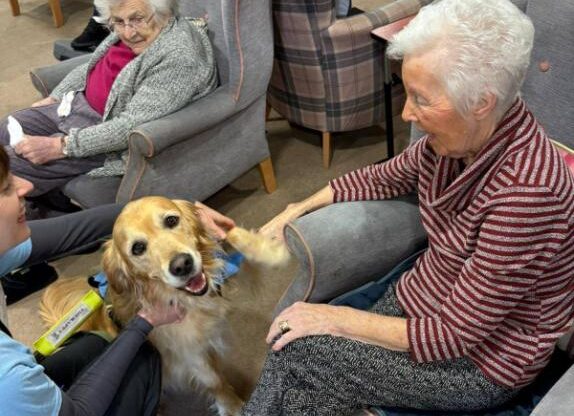Palliative Care vs End of Life Care: What is the Difference and Which is the Right Choice?

When facing a life limiting illness, the journey can be complex, emotional, and deeply personal. Families and patients are often introduced to terms like palliative care and end of life care, sometimes interchangeably. However, these two approaches, while overlapping in purpose, serve distinct roles at different stages of illness.
Understanding the difference between palliative care vs end of life care can help individuals and their family members make informed decisions about their health and wellbeing. At Bothwell Castle, we believe in delivering compassionate, personalised care that reflects the unique needs and wishes of every resident, particularly in the most sensitive periods of life.
What is Palliative Care?
Palliative care is a holistic, specialist care approach for people living with a serious illness or incurable illness. Its main aim is to manage pain, control symptoms, and provide emotional support, spiritual support, and practical support - regardless of a person's age or stage of illness.
Contrary to common misconception, palliative care is not only for those nearing the end of life. Many individuals receive palliative care alongside curative or life-prolonging treatment. It is often introduced early on following a terminal diagnosis or identification of a life limiting condition.
The Goals of Palliative Care
- Improve quality of life for patients and their families
- Address physical symptoms such as pain, fatigue, breathlessness, nausea, and other symptoms
- Provide a holistic approach that includes spiritual, emotional, and social support
- Coordinate care through a multidisciplinary team, including doctors, nurses, social care professionals, occupational therapists, complementary therapists, and other specialists
- Offer guidance on informed decisions regarding treatment options and goals of care
Where is Palliative Care Delivered?
Palliative care can be provided in various settings: in a hospital, care home, outpatient clinics, hospices, or within a person's own homes. The flexibility of these care services means that individuals can continue to receive support that aligns with their preferences and lifestyle.
What is End of Life Care?
End of life care is a specific form of palliative care focused on the final stage of a person's life - typically for those with a life expectancy of 12 months or less. Its goal is to provide compassionate, dignified care for a dying person, ensuring their comfort, well being, and quality of life in their final days.
This type of care ensures that individuals experience as little discomfort as possible and are supported emotionally, spiritually, and physically. It also extends support to families, who may need help coping with the process of saying goodbye and navigating bereavement support afterwards.
What Does End of Life Care Involve?
- Managing complex symptoms such as pain, confusion, agitation, or breathlessness
- Ensuring the person's wishes and preferences are respected
- Providing personal care, such as help with hygiene, feeding, and mobility
- Supporting family members emotionally and practically
- Coordinating efforts between healthcare professionals, social workers, and community nurses
- Offering spiritual support and preparing the person and their loved ones for death
Like palliative care, end of life care is often delivered by a multidisciplinary team that works closely with patients, families, and care professionals to meet the person's evolving requirements.
Key Differences Between Palliative and End of Life Care
Understanding the distinction between palliative and end of life care helps ensure the right support is provided at the right time. Although they share some common goals - such as improving comfort and providing emotional and practical support - there are important differences between the two.
Palliative care can begin at the point of diagnosis and continue throughout the course of a serious or life limiting illness. It is not dependent on life expectancy and can be offered alongside other treatments, including curative therapies. The primary focus is on managing symptoms, such as pain, fatigue, and nausea, while also offering a holistic approach that includes emotional, spiritual, and psychological support. This type of care is available in a range of care settings, including hospitals, care homes, hospices, outpatient clinics, and a person's own home.
By contrast, end of life care is a type of palliative care provided specifically during the final stages of life - often in the last year, months, or final days. It is appropriate when a person's life expectancy is limited, and the emphasis shifts fully to ensuring comfort and dignity rather than extending life. End of life care aims to help individuals remains as pain-free and symptom-free as possible, while also supporting families through the emotional and practical challenges of saying goodbye. Like palliative care, it can be delivered in a variety of settings, but it typically involves a more intensive level of personal care and bereavement support for loved ones.
Additionally, palliative care often encourages people to take an active role in their health decisions, focusing on improving day-to-day living, coping with the impact of the illness, and helping coordinate care services through a multidisciplinary team. End of life care, however, concentrates more narrowly on the comfort of the dying person, with a focus on final arrangements, symptom control, and ensuring that the person's final wishes are honoured.
In essence, the key difference lies in the timing and primary goal of each approach. Palliative care is designed to support someone living with a life limiting condition, often over months or years, while end of life care provides essential support during the last phase of life, prioritising peace, comfort, and dignity.
Which is the Right Choice?
Determining the right care pathway - palliative care or end of life care - depends on a variety of factors, including the stage and progression of the illness, the person's preferences, and the goals of care.
When to Choose Palliative Care
Palliative care is suitable when:
- You or a loved one has been diagnosed with a life limiting illness
- You're experiencing distressing symptoms like pain, breathlessness, or fatigue
- You need support navigating complex treatment options
- You want a holistic approach that includes emotional support and spiritual guidance
- You'd like help coordinating care between healthcare professionals
This type of care enables people to play an active role in their own healthcare, often improving daily life and maintaining a sense of control.
When to Choose End of Life Care
End of life care may be the right choice when:
- A terminal diagnosis has been given with limited life expectancy
- The focus has shifted from curing the illness to enhancing quality of remaining life
- Symptom control and comfort are now the highest priority
- The individual and family need practical and emotional support to prepare for the final days
- Spiritual and bereavement support are essential components of care
The Role of the Multidisciplinary Team
Both palliative and end of life care are delivered by a compassionate multidisciplinary team. This team can include:
- General practitioners (GPs)
- Community nurses
- Palliative care nurses
- Occupational therapists
- Social care professionals
- Complementary therapists
- Spiritual counsellors
- Other specialists involved in specific aspects of care
This collaborative approach ensures that care is fully personalised, meeting the person's requirements and promoting well being throughout the journey.
Care Settings and Services
At Bothwell Castle, we provide specialist care in a welcoming and supportive environment. Our care services include both palliative care and end of life care, delivered with the utmost respect, sensitivity, and professionalism.
We support people with life limiting conditions in own homes, residential care home settings, and in partnership with hospice care teams. Our healthcare team work in partnership with families and other therapists to deliver compassionate, effective care tailored to each individual.
Supporting Families and Loved Ones
Caring for someone with a terminal illness or life limiting illness affects more than just the patients. We ensure that family members are supported every step of the way, with access to:
- Information and guidance about treatment options
- Help navigating emotional challenges
- Bereavement support after the loss of a loved one
- A compassionate team that listens and responds to their concerns
Whether it's helping to understand what to expect in the final days, managing financial and legal matters, or simply being a shoulder to lean on, our staff are here to help.
Making the Right Choice for You or Your Loved One
Choosing between palliative care and end of life care is a deeply personal decision, and it's important to consider the person's values, wishes, and quality of life goals. These types of care are not mutually exclusive - they often work together to provide a continuum of support from diagnosis through to the end of life.
At Bothwell Castle, our focus is always on treating the whole person, not just the illness. We offer compassionate, comprehensive support designed to ease suffering, provide comfort, and enhance every moment of life.
If you would like to learn more about our care services, speak to our team about how we can support you and your family during this important time.
Contact us today to find out how Bothwell Castle Care Home can support you or your loved one with compassionate, professional palliative and end of life care.





